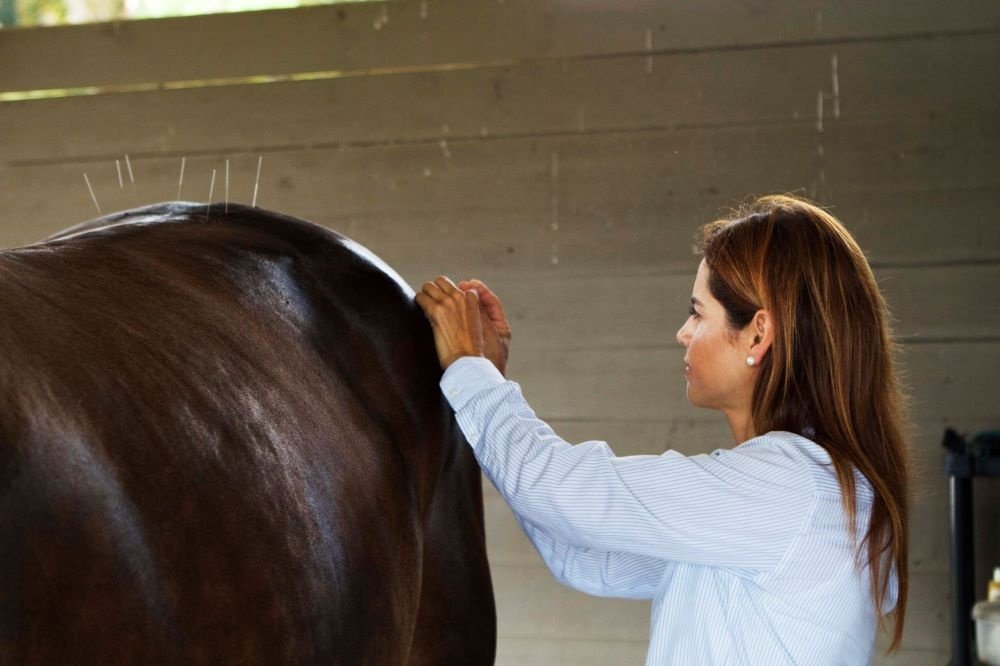As horse owners seek more holistic, less invasive ways to care for their equine partners, natural remedies and alternative therapies are gaining popularity.
From acupuncture and chiropractic work to herbal supplements and essential oils, these practices aim to support the horse’s body in healing itself—often alongside traditional veterinary care.
While alternative therapies were once considered fringe, many are now being embraced by vets, trainers, and riders who appreciate their gentle, whole-horse approach. Whether used for recovery, stress relief, or performance support, these remedies offer promising ways to enhance equine health naturally.
Why Consider Alternative Therapies for Horses?
Modern veterinary medicine is essential, especially in emergencies and for diagnosing serious health conditions. But not every situation requires medication or invasive procedures. Alternative therapies focus on treating the root cause rather than just the symptoms and often come with fewer side effects.
They’re also useful for preventative care, offering gentle support for immune health, digestion, joint function, and mental balance. Many horse owners find that incorporating natural remedies can reduce the frequency of health issues and improve their horse’s overall quality of life.
1. Equine Acupuncture
Acupuncture has been used in Chinese medicine for thousands of years and is now gaining traction in the equestrian world. This practice involves inserting very fine needles into specific points on the horse’s body to stimulate energy flow (or “Qi”) and restore balance.
Benefits:
- Reduces inflammation and pain
- Promotes circulation and healing
- Supports digestive and respiratory health
- Calms nervous or anxious horses
Veterinary acupuncture is most commonly used for back pain, lameness, arthritis, and post-surgery recovery. It’s gentle, generally well-tolerated, and often shows positive results after just a few sessions.
2. Chiropractic Adjustments
Equine chiropractic care focuses on the alignment of the spine and joints. Misalignments—caused by improper saddle fit, poor posture, injuries, or repetitive motion—can interfere with movement, cause pain, and affect nerve function.
A certified equine chiropractor uses specific, hands-on adjustments to restore alignment and mobility. These adjustments can help improve:
- Gait irregularities
- Stiffness or resistance
- Uneven muscle development
- Overall balance and performance
For performance horses, regular chiropractic care can be a game changer, keeping the body supple and reducing injury risk.
3. Herbal Supplements
Herbal remedies are among the oldest forms of medicine—and they’re making a big comeback in horse care. Carefully selected herbs can support everything from digestion and joint health to hormonal balance and anxiety reduction.
Common herbs used for horses:
- Chamomile – Soothes anxiety and supports digestion
- Devil’s Claw – Natural anti-inflammatory for joint pain
- Milk Thistle – Supports liver function and detoxification
- Valerian Root – Calming herb for nervous horses
- Marshmallow Root – Soothes the digestive tract
Not all herbs are safe for all horses, so it’s important to consult with a vet or equine herbalist before starting any new supplement.
4. Essential Oils
Used aromatically or topically (with proper dilution), essential oils can have calming, healing effects on horses. Their concentrated plant compounds support relaxation, skin health, and even minor wound healing.
Popular essential oils for horses:
- Lavender – Calming and good for stress relief
- Tea Tree (Melaleuca) – Antibacterial and antifungal (use with caution)
- Peppermint – Cooling and soothing for sore muscles
- Frankincense – Anti-inflammatory and grounding
- Eucalyptus – Opens airways and supports respiratory health
Because horses are highly sensitive to smells, oils should always be introduced slowly. Always dilute and never apply near the eyes, nose, or sensitive areas.
5. Massage and Bodywork
Equine massage is more than pampering—it can improve circulation, reduce muscle tension, enhance range of motion, and promote faster recovery. Regular bodywork helps identify areas of discomfort before they turn into bigger issues.
Techniques like myofascial release, craniosacral therapy, and trigger point therapy are also used to release tension in deeper tissues and improve structural alignment. Many horse owners notice behavioral changes and improved performance after just a few sessions.
Things to Keep in Mind
Natural doesn’t always mean risk-free. While many alternative therapies are gentle, it’s important to use them wisely:
- Work with certified professionals (acupuncturists, chiropractors, herbalists)
- Introduce remedies gradually and observe your horse’s reaction
- Keep your vet informed about all supplements and therapies
- Use quality products—especially with herbs and essential oils
Combining conventional and alternative approaches (often called integrative care) gives you the best of both worlds: scientific reliability and natural support.
Final Thoughts
Horses are complex, sensitive creatures, and their health requires more than just treating problems when they arise. Natural remedies and alternative therapies offer a way to support the whole horse—body, mind, and spirit.
Whether you’re looking to ease an older horse’s arthritis, calm a nervous traveler, or simply boost your equine partner’s resilience, the world of holistic horse care has something meaningful to offer. The key is patience, knowledge, and a willingness to explore what works best for your unique horse.




